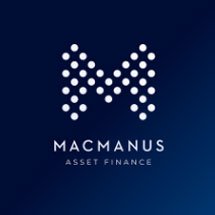One week your business is thriving, card sales are strong, and orders are rolling in. The next week, cash flow slows, bills are due, and expenses like wages, rent, or stock purchases don’t wait. For small and medium-sized businesses, managing this ongoing balancing act is a constant challenge.
Traditional bank loans aren’t always the easiest solution. They often require lengthy applications, strict credit checks, collateral, and weeks of waiting—sometimes with no guarantee of approval. For companies looking for a faster option, flexible business funding provides a solution that adapts to your cash flow.
What Is Flexible Business Funding?
Flexible business funding refers to financial products that give businesses access to working capital with adaptable repayment terms. One of the most common forms is a merchant cash advance, though in this article we focus on it as part of a broader funding approach for SMEs.
In simple terms: a provider gives your business a lump sum upfront, and repayments are taken as a percentage of daily or weekly card transactions. The more you sell, the faster you repay. When sales slow, repayments reduce accordingly.
This repayment model ensures that businesses never have to struggle with fixed monthly repayments that can strain cash flow. Companies looking to upgrade equipment without impacting cash flow may particularly benefit from this structure.
For businesses looking to spread the cost of machinery or vehicles, asset finance is another flexible funding option that works alongside sales-based repayment solutions.
How Flexible Business Funding Works
Here’s the typical process:
Application – Submit recent card sales history, typically 3–6 months.
Approval and Advance – Receive a lump sum quickly, often within 24–48 hours.
Repayment via Sales – A percentage of daily or weekly card takings is deducted automatically.
Completion – Repayments continue until the total amount plus agreed fees is fully repaid.
Unlike a traditional loan, collateral is usually not required. Businesses managing VAT obligations can pair this funding with VAT loans to keep cash flow steady.
A Practical Example
Imagine a London café with monthly card sales of £20,000. The owner wants to renovate before the holiday season but lacks savings. Using flexible business funding:
Advance: £25,000 upfront.
Repayments: 10% of daily card sales, with a fixed cost of £5,000 (total repayment £30,000).
During a busy weekend, £3,000 in sales means £300 is repaid. On a slow weekday with £1,000 in sales, repayment drops to £100. Over a few months, the advance is fully repaid, and the café benefits from a renovated space that boosts future revenue.
Businesses experiencing gaps due to unpaid invoices can combine this approach with invoice finance to turn receivables into working capital.
Eligibility for Flexible Business Funding
Approval is simpler than for traditional loans. Providers focus on revenue rather than credit scores. Typical requirements include:
Card Sales History: Minimum 3–6 months of consistent card transactions.
Minimum Monthly Turnover: Usually £5,000–£10,000.
Business Trading History: Often 3–6 months.
UK Business Bank Account: Required for direct deposits and repayments.
Basic Documentation: Bank statements, merchant processing statements, proof of identity.
For more detailed guidance on maintaining healthy cash flow, check Liquidity in Business: Why It Matters and How to Strengthen It.
Benefits of Flexible Business Funding
Fast Access to Cash: Approval and funding can happen within 24–48 hours, faster than traditional loans.
Flexible Repayments: Payments adjust to sales, reducing cash flow pressure.
Minimal Paperwork: Providers prioritize revenue over credit scores.
No Collateral Required: Your sales history acts as security.
Supports Business Growth: Funds can cover stock, equipment, renovations, or operations. For equipment-specific needs, asset finance allows you to spread costs without using cash reserves.
Who Can Benefit?
Flexible business funding is ideal for businesses relying on regular card transactions:
Retail Stores: Manage seasonal fluctuations and stock for peak periods.
Restaurants & Cafés: Cover renovations, equipment, or supplier bills.
Hospitality & Tourism: Smooth seasonal cash flow swings.
Salons & Personal Services: Expand services or cover unexpected costs.
E-Commerce: Fund stock, campaigns, or tech upgrades.
Gyms & Fitness Centres: Support memberships, equipment, or promotions.
For businesses handling VAT obligations alongside cash flow needs, pairing funding with VAT loans can provide additional flexibility.
How to Choose a Provider
Selecting the right partner is crucial:
Transparency in Fees: Clear explanations without hidden costs.
Speed of Funding: Reliable providers deliver within 24–48 hours.
Reputation & Support: Check reviews and speak to providers directly.
Flexible Terms: Payments should scale with sales.
Alternative Options: Providers offering asset finance, invoice finance, or business loans give you flexibility to select the right solution.
For a deeper comparison of funding methods, see Hire Purchase vs Leasing: Which Is Right for Your Business Assets?
Flexible Business Funding Options in the UK
Some reputable providers include:
Liberis: Fast approval for businesses with £1,000+ in card sales per month.
365 Finance: Offers Rev&U™ MCAs with daily repayment percentages.
Liquid Corporate Finance: Up to twice monthly card turnover, fast approvals.
AptPay & Tower Leasing: Flexible, fast-access solutions across London and the UK.
Is Flexible Business Funding Suitable for Startups?
Very early-stage startups may struggle to qualify, as providers require trading history. Businesses with consistent card sales over several months can use flexible business funding to manage cash flow and growth.
For startup funding strategies, refer to Why SMEs Are Turning to Brokers Instead of Banks for Business Finance.
Ready to Make Asset Finance Work for Your Business?
Partner with MacManus Asset Finance Ltd, an independent broker established in 2005, helping UK SMEs access tailored finance solutions. Our friendly, professional, and consultative team works across all industries and can guide you through hire purchase, leasing, and finance lease options. With access to over 60 finance companies and full FCA authorisation, we ensure your business finds the right solution for growth.









